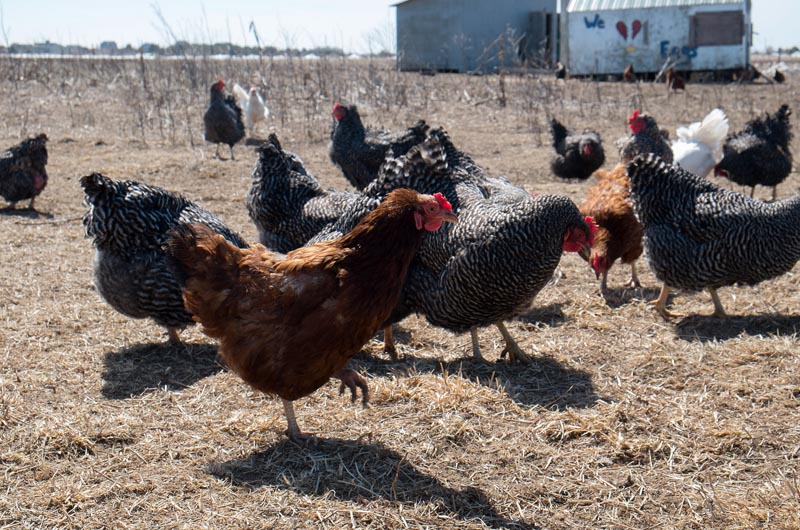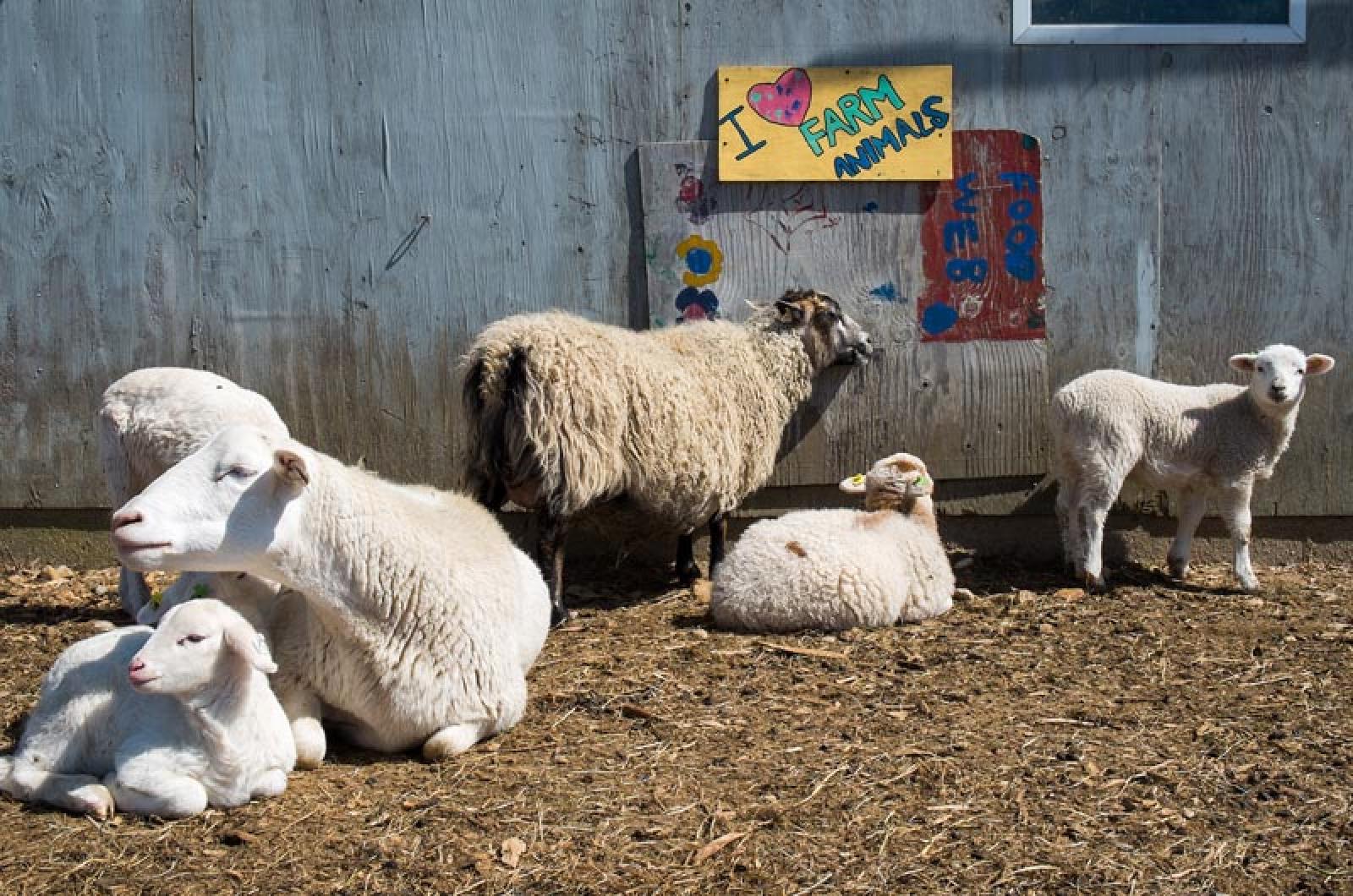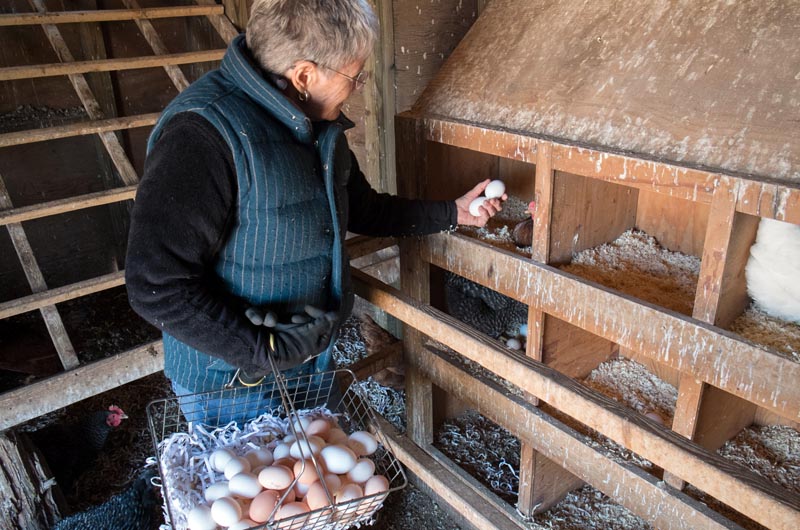The Farm Institute and The Trustees of Reservations have announced plans to merge by the end of the year, with the Trustees taking the 15-year-old nonprofit teaching farm under its wing.
Leaders from both organizations told the Gazette Wednesday that they had signed what is termed an integration agreement, intended to begin a process where the Trustees absorb the staff, programming and assets of the Farm Institute. The institute operates at Katama Farm, a 186-acre farm which it leases from the town of Edgartown.
The merger aims to bring financial stability to the farm and expanded programs in the area of farming, education and food production for the Trustees, a prominent Massachusetts-based conservation organization that has had a strong presence on the Vineyard for decades.
“Farming and teaching are the two least profitable endeavors,” Farm Institute executive director Jon Previant said. “Being trapped into these two professions that are extremely hard to make money at, the idea that someone has some financial strength, without changing our mission, that is really a gift. From my perspective, it is a wonderful marriage.”
When the merger is complete, the Farm Institute will continue to offer year-round educational programs including a popular summer camp. Mr. Previant will continue as executive director, but the Trustees will oversee the educational working farm.
“For all intents and purposes, the farm is going to look very much the same for the first couple years after this integration moment,” said John Vasconcellos, southeast regional director for the Trustees.
The two groups are also announcing a joint campaign to raise $2 million for the farm by 2016. The funds will be used to create an endowment for the property, support growth in programming and pay for the construction of a new teaching kitchen.
Talks about merging began last fall when Trustees chief executive officer and president Barbara Erickson approached Mr. Previant.
During frequent trips to the Vineyard, Ms. Erickson said she’s long admired the landscape at Katama Farm with its sweep of Great Plains farmland. She also noticed an alignment between the respective missions of the nonprofits; both are interested in preserving agricultural lands and teaching the tenets of sustainability.
“The approach and the cultures were very similar,” Ms. Erickson said by telephone Wednesday. “We feel we can be a great anchor organization for the Farm Institute.”
“I think this is a win-win for both organizations,” said Christopher Kennedy, Martha’s Vineyard superintendent for the Trustees.
If all goes according to plan, the farm will become the 114th property to come under the Trustees’ purview.
Founded in 1891 by Boston landscape architect Charles Eliot, the Trustees are a conservancy with a mission of connecting people to the land. Their presence on the Vineyard began in 1959 with a gift of land at Cape Pogue on Chappaquiddick.
Today, Vineyard holdings by the Trustees include Wasque Reservation, Cape Pogue Wildlife Refuge and Mytoi garden on Chappy, Long Point Wildlife Refuge in West Tisbury, and Menemsha Hills and the Brickyard in Chilmark. Acquired last year, the Brickyard is the newest property.
The Trustees also hold conservation restrictions for an additional 23 properties on the Vineyard and the Elizabeth Islands. In all, their holdings provide protection for 5,600 acres countywide.
The Farm Institute, by comparison, is much younger. It was founded in 2000 and began operating at Herring Creek Farm in July of 2001.
In 2005, the nonprofit moved eastward to the town-owned Katama Farm.
The flat, windswept property, which historically served as a farm, has its own conservation story. The property was targeted for a residential subdivision in the 1970s, but then in 1979 the town acquired the property through a unique joint town and state conservation purchase. Over the next 25 years, the town leased the property to a series of failed farming operations.
When the Farm Institute moved in, they fulfilled a vision for the property, Mr. Vasconcellos said.
“There is no mystery that Katama Farm has had a long and very colorful history,” Mr. Vasconcellos said. “The arrival of the Farm Institute really brought stability and focus.”
But the nonprofit has also experienced growing pains, Mr. Previant said.
“The mistakes we have made in the last five years had to do with finding out what the Katama Farm produces best,” he said. While the Katama plains are ideal for grazing cows, sheep and goats, other uses of the land have been less profitable.
Going forward, the partnership with the Trustees will allow the Farm to uphold a commitment to farming education.

It will also allow them to experiment more.
“Failure when you are just running at break even without a safety net is really uncomfortable,” Mr. Previant said. “That’s where the kind of security that the Trustees can offer comes in.”
The Trustees already own 2,000 acres of farmland across the state, including three farms: Powisset Farm in Dover, Appleton Farm in Hamilton and Ipswich, and Weir River Farm in Hingham.
Ms. Erickson said the Farm Institute will fit snugly among those other properties.
“Our organization is heavily invested in food systems, and not only bringing local food to people but supporting sustainable farms in our state,” she said. “We were really heartened and inspired by the programming at the Farm.”
Mr. Vasconcellos said the Trustees have already approached their future landlord, the town of Edgartown, with their intentions, and said they had received a favorable response.
“It’s exciting for the Trustees, it’s exciting for the Farm and it’s exciting for the Island,” Ms. Erickson said.









Comments (4)
Comments
Comment policy »